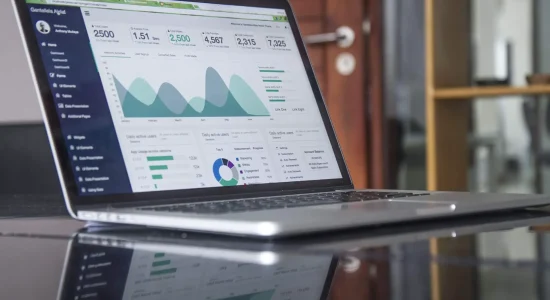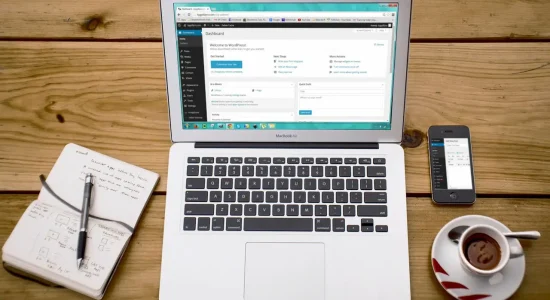In an ocean full of websites on Google, it’s harder to get ranked if your game isn’t top-notch.
Here are the seven reasons why your blog is not ranking on Google:
- Your post URL is not optimized.
- Your content is dead.
- Your plugins are slowing down the site speed.
- You have affiliate-heavy content.
- You are outsourcing your content.
- You are not being consistent.
- Your posts lack internal linking.
There are millions of competitors trying to outrank your blog and if they succeed, you might be thinking: where did you go wrong that made your blog lose its ranking?
Building a blog isn’t enough to generate traffic, one has to make content that reaches Google. Let’s face it, if Google can’t find your website, chances are no real person would. Dozens of bloggers worry about why their blog isn’t ranking on Google, even after trying their best.
In this video, I have discussed the seven things you should stop doing right now — to get ranked on Google.
Let’s discuss each reason detail.
7 Reasons Your Blog is Not Ranking on Google
#1 URL
The primary reason your blog isn’t ranking on Google could be because of your URL. Many people who create a blog post tend to put numbers in their blog titles,
For example,
- Top 10 Best Knife Sharpeners
- 5 Mistakes You Should Avoid as a Photographer
- Best Gaming Consoles in 2022
…and more such titles. This is a common mistake that various blog titles have.
This can potentially hurt your rankings because if your URL has a number and you want to update the blog post title later on such as changing ‘’Top 10 best PC Games’’ to ‘Top PC Games,’ then changing the URL can take away all your rankings on Google.
To avoid this, make sure you are 100% sure that you have complete control of your redirect and won’t change it in the future.
Keep the URL as short as possible, so you can easily change your title later on if you think that your blog post title should be updated to a better title.
#2 Dead Content
Ranking poorly is a given to blogs that let their content die. People tend to only focus on blog posts that generate traffic and get ranked higher on Google.
This way, they end up ignoring the blog posts that don’t bring in much traffic and have never even ranked on Google.
The blogs you create are meant to have evergreen content. Even blogs that rely only on social media platforms for traffic can be updated gradually with time and then posted again on social media.
Here are some of the evergreen content examples:
- How-to Guides
- FAQs
- Listicles
My emphasis is on having evergreen content on your blog posts since it helps them rank better on Google. This is because with the constant passing of time the information in your blog posts can change, or get updated, which can naturally make you lose your rankings.
Plus the competitor’s blogs can simply outrank you by creating better content.
So the key to generating more traffic and keeping your rankings on Google is to keep updating your current blog posts with timely information instead of focusing solely on creating new content.
Because most of the time, you can score several rankings or keep several rankings for years to come by constantly updating your blog posts, especially if the blog posts are about big subjects.
Don’t write on time-sensitive topics to avoid your content being dead. For example,
- Football Upcoming Fixtures
- London Mayor Candidate
- Things to Do at Qatar Football World Cup
#3 Plugins
I have noticed a lot of people tend to use several plugins for their blogs which is a huge mistake in my opinion.
You do not need more than two, three, or maybe even five plugins on your blogs.
The more plugins you have, the more they will slow you down and some can even end up hurting you at one point.
Every plugin is said to have a technical vulnerability, which makes it easy for hackers to access your blog and get it restricted by Google’s authority.
This means you can watch all your hard work and time invested in the blog go down the drain and start anew.
The only plugins you would need are:
- Two-factor authentication (Security plugin)
- AAWP (Affiliate plugin)
- Ezoic or Mediavine Control Panel (Ad setup plugin)
If your theme is not SEO-optimized, you can have Yoast as your plugin. But I would prefer to keep your theme as SEO-optimized as possible because the fewer plugins you have, the more chances that your blog will rank higher on Google.
#4 Information Ratio
Google’s algorithms go through various changes and a lot of people get hit by those algorithms updates. Even upon my research, about 66% of my community had been hit.
I see a lot of affiliate heavy blogs carrying blog posts about product reviews or product articles such as best knife sharpeners, etc. which have a high commercial intent ratio on their blogs.
The key to keeping ranking over time in Google is making sure that Google understands you have the expertise or that you are authoritative in your niche.
To do that, you need to create a lot of blog posts about information, such as teaching the visitors about everything in your niche.
I would suggest having a 50/50 percent ratio in the blog posts, you can even go higher to an 80/20 ratio (80% informational content + 20% affiliate content).
This ensures that your website is strong and contains information about your niche. This will make you survive these scary Google algorithm updates.
Avoid these five worst niches for blogging to make any money.
#5 Outsourcing
A lot of blog owners outsource; it has become quite a norm. Outsourcing helps a lot of blog owners but the mistake lies in the timing.
Several people tend to outsource too early and never write any of the content themselves on their blog.
These blogs tend to take a longer time to get ranked since the writer doesn’t know what it takes to get ranked in the niche.
If you have written the first 20, 30, or 50 blog posts in your niche then it’s easy to understand what info it takes to get ranked on Google in your niche.
If you are not capable of writing yourself, you can make audio recordings about the knowledge of your niche so the writer can make a blog post according to it. This can help you create good content as well as help your blog rank better in your niche.
One doesn’t necessarily have to be a good writer to create good traffic-generating blog posts, they just have to know in-depth information about the content or niche.
#6 Accountability
Lots of bloggers that I know have a hard time staying motivated. When I asked my community what the hardest part about running a blog is, about 50% of them said ‘consistency’.
Not taking action, or remaining inconsistent with the blog posts is the biggest mistake for a blog owner since they have embarked on a journey to generate income online.
This is why accountability groups can be your biggest ally.
Therefore, I am launching a VIP community at the same price as Netflix, for people who want to learn about my way of blogging and for those blog owners who are currently looking for other like-minded bloggers.
This can potentially give you more motivation on the days when you find it hard to stay motivated to post.
#7 Internal Links
Lastly, let’s talk about internal links. I see various bloggers creating some exceptionally great content but they have no internal links. Internal links play a pivotal role in the ranking of your blog posts.
For a fresh blogger, some of the posts will have a much easier way of ranking than other posts because of competition and other great content out there.
However, when you find out the cracks in your niche, you can eventually start to rank from your blog post. And if your blog posts are ranking better on Google, it’s a shame to not include any internal links in them.
I make sure that every blog post of mine should link to at least five or sometimes even 10 other blog posts since all of my blog posts are highly connected and relatable with all of the blogs that I have written on the blog.
Creating internal links can help generate traffic to your older posts.
You should also go back to your older blog posts that already rank on Google and add internal links to your new blog posts so they can get traffic and eventually rank on Google as well.
Conclusion
Now that I have discussed why your blog might not be ranking on Google, identify which reason is relatable for your blog, work to fix it, and get ranked on Google.
I hope this blog post helped you, I wish the best for you and your blog.





